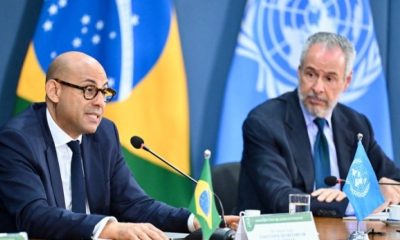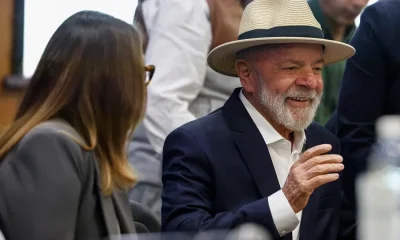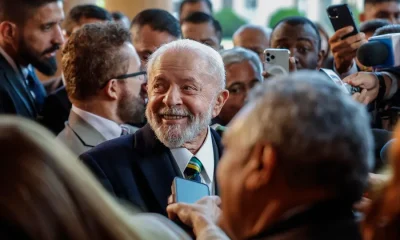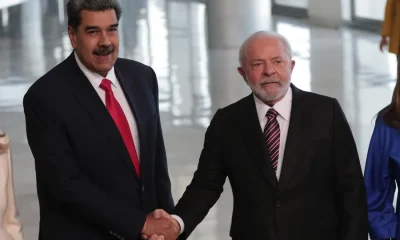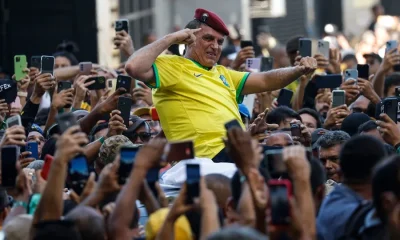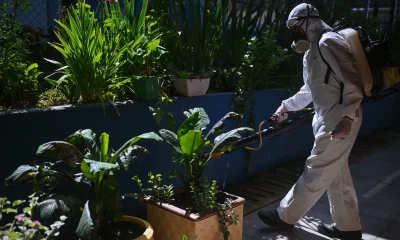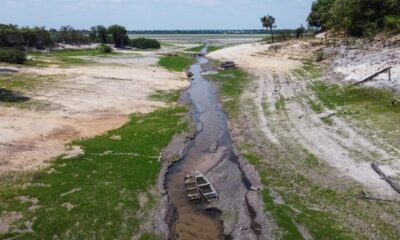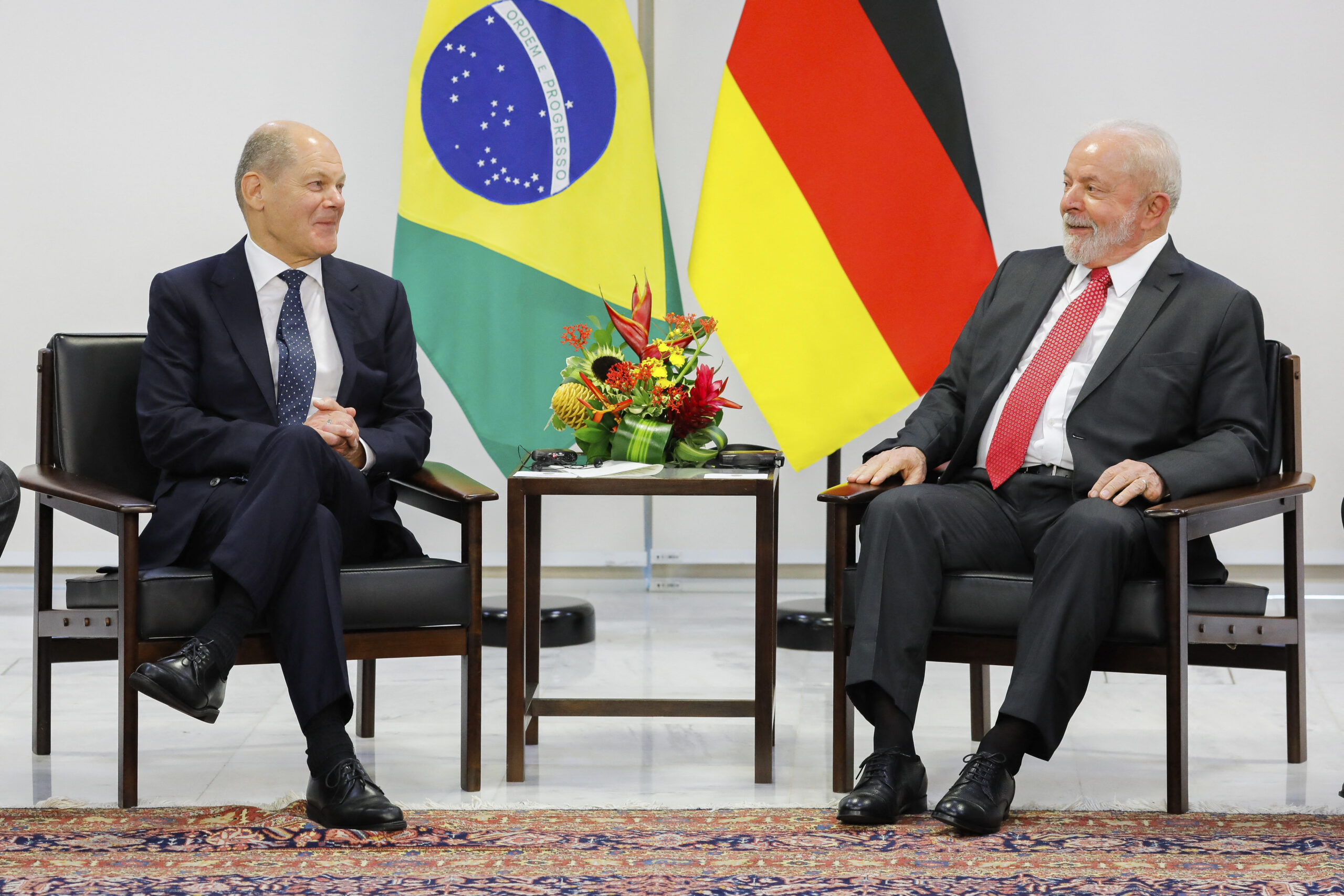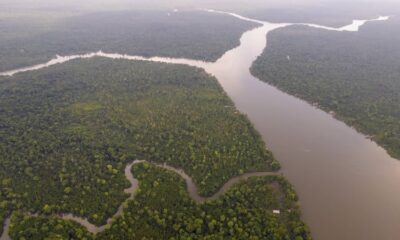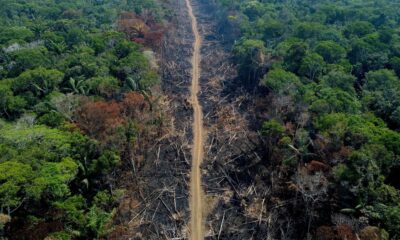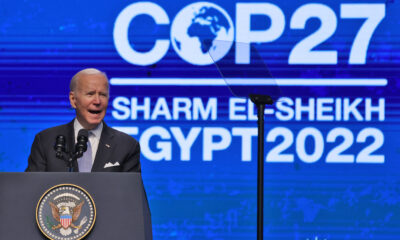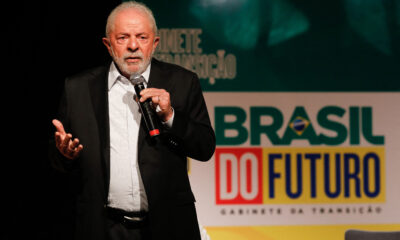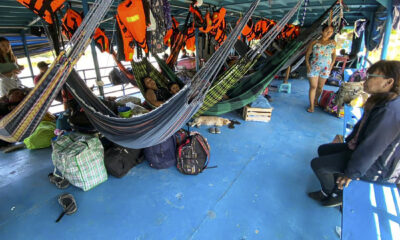International
Brazil’s Lula headed to UN climate talks with vow to save Amazon
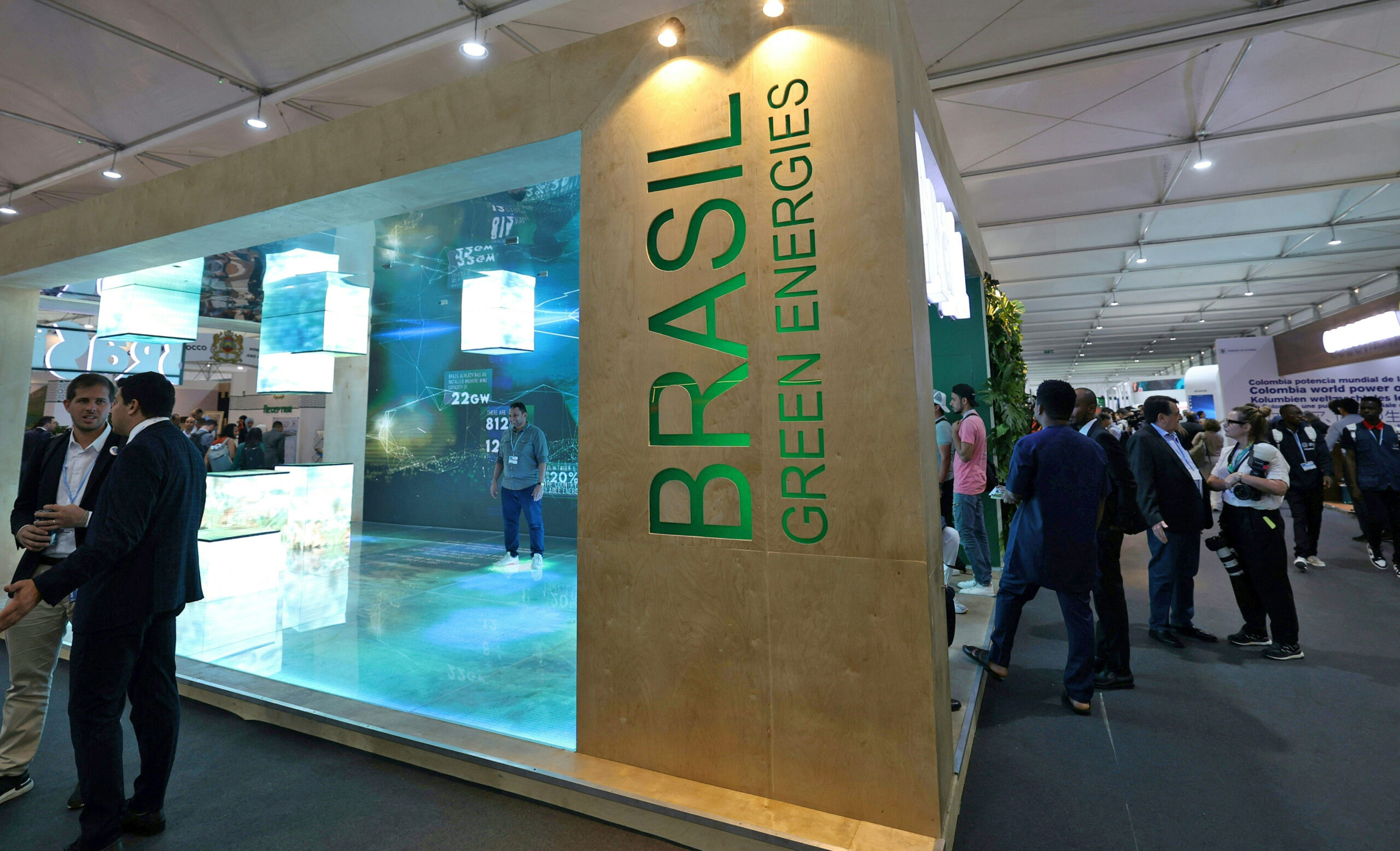
| By AFP | Louis Genot |
Brazilian president-elect Luiz Inacio Lula da Silva is expected this week at the UN climate summit in Egypt to pledge to reverse the environmental policies of his right-wing predecessor and protect the Amazon rainforest.
Lula’s trip Monday to the COP27 talks in Sharm el-Sheikh will be his first international visit since beating Brazil’s far-right incumbent Jair Bolsonaro in the October 30 runoff election.
The 77-year-old, who promised on the campaign trail to work towards zero deforestation, will address the conference on Wednesday, his press team said.
In a nod to Lula’s victory speech, in which he pledged to end Brazil’s “pariah” status, his team said he had wanted to hold “more talks with world leaders in a single day than Bolsonaro had in four years.”
But according to Brazilian newspaper O Globo, the incoming president has not been able to line up most of the dozen or so high-level meetings he had requested.
Lula might, however, meet with US climate czar John Kerry and announce that Brazil is willing to host the COP30 summit in 2025, the newspaper said.
Latin America’s most populous country grew more isolated under Bolsonaro, analysts say, in part due to his permissive policies towards deforestation and exploitation of the Amazon, the preservation of which is seen as critical to fighting global warming.
If Lula — who served as president from 2003 to 2010 — manages to curb deforestation and illegal mining, he would make a major contribution to the global fight against climate change, said Francisco Eliseu Aquino, a climate expert at Rio Grande do Sul University.
“Lula knows the COP talks well. He was always proactive in international discussions and kept a high international profile” during his first two terms, said Aquino.
Deeper cooperation
To meet the environmental challenge, the former steelworker who begins his third term on January 1, hopes to get help from the international community.
Lula’s former and likely future environment minister, Marina Silva, has already been holding meetings at the UN summit, and has said that Brazil will lead “by example” on combatting climate change.
She said Lula plans to fight the destruction of the Amazon and pursue a reforestation target of 12 million hectares, with or without international aid.
But she welcomed announcements from Norway and Germany that they would resume financial support to the Amazon Fund. Both countries withdrew aid in 2019 shortly after Bolsonaro came to power.
“With Lula’s weight and influence, and due to worries all over the world for the Amazon, it is possible that some bilateral agreements might be reached,” said Daniela Costa, a spokesperson for Greenpeace Brazil.
Silva said the US government was “prepared to deepen cooperation” with Brazil after she met with Kerry last week.
She also said in an interview with Brazilian broadcaster Globonews that she had invited the United States to contribute to the Amazon Fund.
‘Much more daring’
Deforestation was at a high level at the start of Lula’s first term in 2003, before falling sharply under Silva as minister. But she resigned in 2008, saying was not getting the money she needed to take her efforts even further.
Aquino said the policies of Lula’s next government need to be “much more daring” than during his first two terms in power.
At COP27, Lula could announce the creation of a high-level body to coordinate the work of different ministries active in climate work.
Since Bolsonaro — a staunch ally of agribusiness — took office in January 2019, average annual deforestation in the Brazilian Amazon increased by 75 percent compared to the previous decade.
The fight against global warming is not just about protecting precious areas like the Amazon, he said. “It also involves the economy, health and agriculture.”
“We welcome the arrival of Lula with much hope,” said Dinaman Tuxa, coordinator of the Articulation of Indigenous Peoples of Brazil.
International
Claudia Sheinbaum: Operation Against ‘El Mencho’ Was Based on Pending Arrest Warrants

Mexico’s President Claudia Sheinbaum on Wednesday rejected claims that the military operation that resulted in the death of Nemesio Oseguera Cervantes, known as “El Mencho,” leader of the Jalisco New Generation Cartel (CJNG), was carried out under pressure from the United States government.
Sheinbaum explained that the deployment of federal forces was aimed at executing outstanding arrest warrants against Oseguera Cervantes, who was considered one of the most wanted criminals in both Mexico and the United States.
“That was not the objective (to ease pressure from the United States). It is very important, and I want to repeat it. This individual had an arrest warrant, or several,” Sheinbaum said, referring to the operation conducted on February 22.
According to the president, the initial goal was to capture Oseguera Cervantes, but military forces responded after coming under attack during the intervention.
“The operation was to detain him. The problem is that they were attacked — the Secretariat of National Defense — and they responded at that moment,” she said.
The president insisted that the action was not carried out in response to external demands, although she acknowledged intelligence cooperation with the United States.
“It was not done in any way because of pressure from the United States, not at all. Of course, there was intelligence information from the United States that was used specifically,” she concluded.
International
Spain Denies Any Agreement to Cooperate with U.S. Military in Iran Operations
International
White House Says Spain Agrees to Cooperate with U.S. Military After Trump Threatens Trade Embargo

White House Press Secretary Karoline Leavitt said Wednesday that Spain has agreed “in recent hours” to cooperate with the U.S. military, following President Donald Trump’s threat to impose a trade embargo on Madrid.
Trump had warned of potential commercial measures after Spain reportedly refused to allow the Pentagon to use facilities at Spanish military bases for operations related to Iran.
“With respect to Spain, I think you heard the president’s message yesterday loud and clear, and I understand that in recent hours they have agreed to cooperate with the United States military,” Leavitt said during a press briefing.
She added that the U.S. military is currently coordinating with its counterparts in Spain. However, the president expects broader support.
“The president expects that all of Europe, all of our European allies, of course, will cooperate in this important mission — not only for the United States, but also for Europe,” Leavitt said.
Her remarks came in response to questions about Spain’s position and its role as a U.S. ally amid rising tensions surrounding operations involving Iran.
-

 International4 days ago
International4 days agoIran Reports 201 Dead, 747 Injured After U.S. and Israeli Strikes
-

 International3 days ago
International3 days agoBrazil’s Supreme Court Rejects Bolsonaro’s Bid for House Arrest
-

 International3 days ago
International3 days agoAnti-ICE Billboard Campaign Targets Immigration Spending in 31 U.S. Cities
-

 International4 days ago
International4 days agoPope Leo XIV Urges End to ‘Spiral of Violence’ in Middle East
-

 Sin categoría5 days ago
Sin categoría5 days agoTrump: ‘We Think It’s True’ Amid Claims Iran’s Supreme Leader Was Killed
-

 International2 days ago
International2 days agoSpain’s Prime Minister to Address Nation Amid Trump’s Trade Threats
-

 International5 days ago
International5 days agoSecurity Council to Hold Emergency Meeting on Middle East Crisis
-

 International3 days ago
International3 days agoTrump Warns of ‘Major Wave’ of Attacks as Iran Conflict Escalates
-

 International3 days ago
International3 days agoMexico Calls for Immediate Probe After National Dies in ICE Custody
-

 International18 hours ago
International18 hours agoWhite House Says Spain Agrees to Cooperate with U.S. Military After Trump Threatens Trade Embargo
-

 International18 hours ago
International18 hours agoSpain Denies Any Agreement to Cooperate with U.S. Military in Iran Operations
-

 International2 days ago
International2 days agoNew York Announces First 2,000 Seats in Universal 2-K Program
-

 Central America3 days ago
Central America3 days agoPanama Canal Monitoring Trade as Middle East Conflict Disrupts Shipping
-

 Central America18 hours ago
Central America18 hours agoNicaragua Held Responsible for Harassment of Opposition Prosecutor and His Family
-

 International3 days ago
International3 days agoBolivia Orders Three Investigations Into Deadly Military Plane Crash
-

 International2 days ago
International2 days agoWarner Bros. Developing First ‘Game of Thrones’ Movie With ‘Andor’ Writer
-

 Central America2 days ago
Central America2 days agoGuatemala’s Attorney General Fails in Bid for Top Court Seat Amid Corruption Allegations
-

 International18 hours ago
International18 hours agoClaudia Sheinbaum: Operation Against ‘El Mencho’ Was Based on Pending Arrest Warrants





























